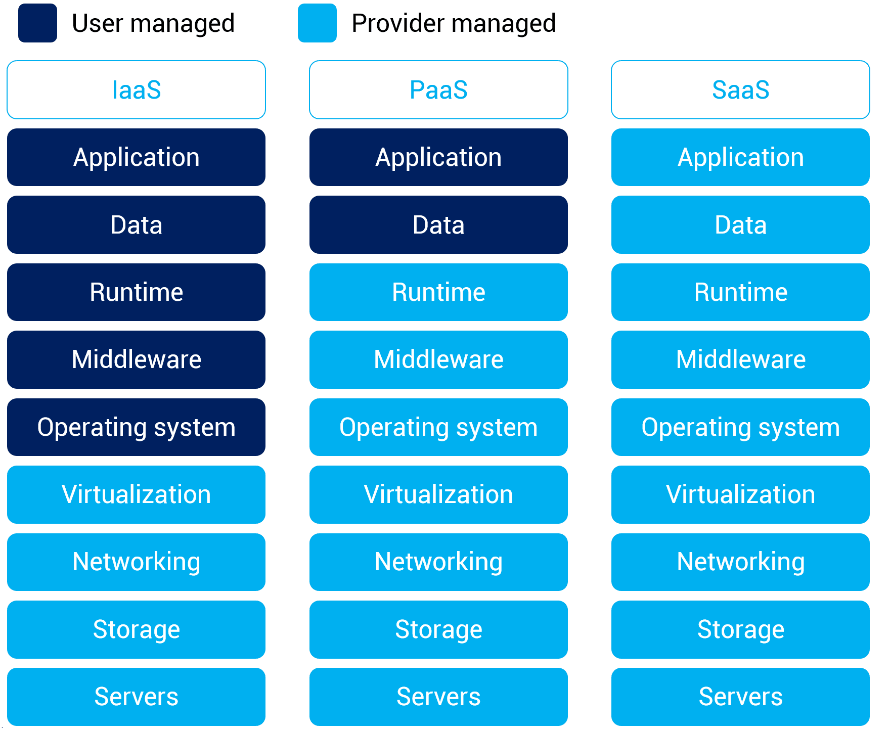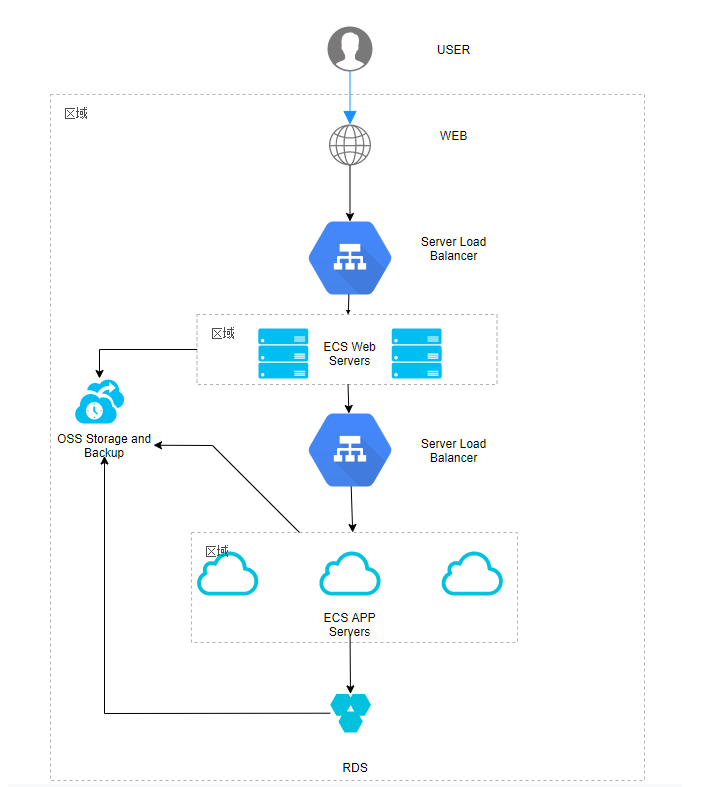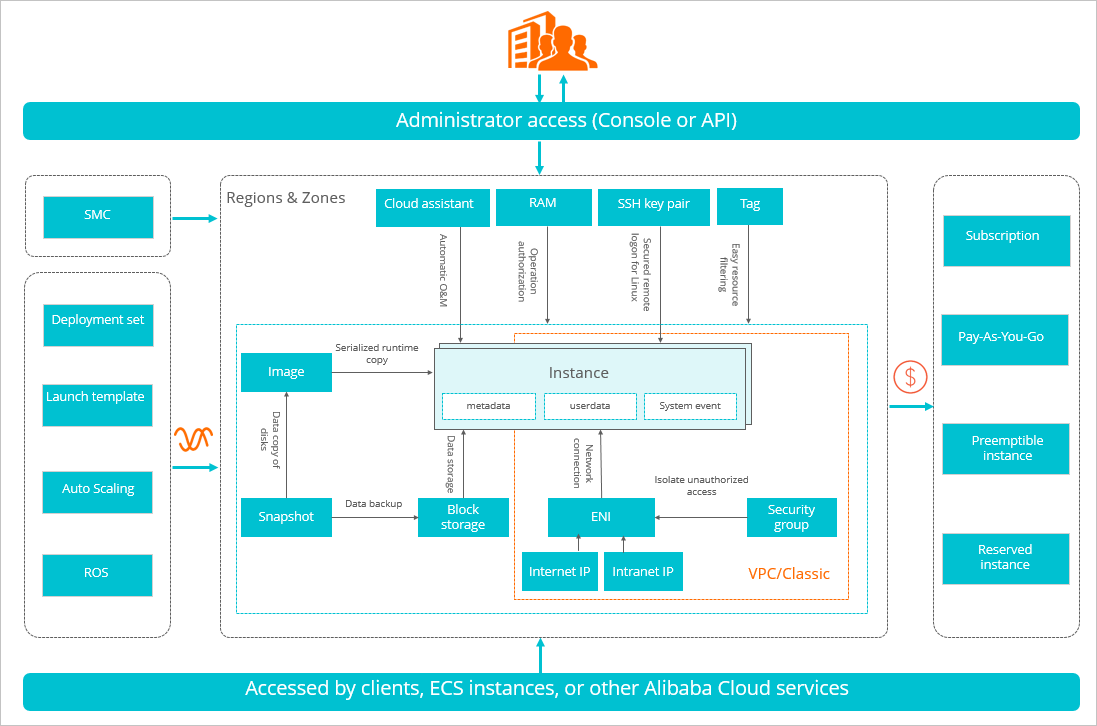By Shantanu Kaushik
Cloud computing has opened up gateways to a more productive and easier approach for enterprises to extract value and add a significant boost to their businesses. After the initial introduction of cloud computing, it expanded exponentially and saw rapid evolutionary cycles along the way. This evolution added core computing methodologies with tools and practices based on the core cloud model.
Alibaba Cloud became prime movers in the industry by putting extensive research into developing services and solutions with the open-source community. Cloud + Computing is a combination of resources that work in-sync to provide a unified and seamless experience for enterprises and individuals adopting cloud computing.
Alibaba Cloud provides many services and solutions based on different models. These models are Infrastructure as a Service (IaaS), Platform as a Service (PaaS), and Software as a Service (SaaS).

In this article series, we will discuss the concepts of Alibaba Cloud Elastic Compute Service (ECS), its features, benefits, and real-world usage scenarios.
Alibaba Cloud introduced the Elastic Compute Service (ECS) to provide a computing service that could fulfill the checklist’s reliability, scalability, and high-performance. Alibaba Cloud ECS is an Infrastructure as a Service (IaaS) based solution that helps IT strategists or infrastructure managers implement without worrying about the hardware infrastructure provisioning.
Deploying your services on Alibaba Cloud using the Elastic Compute Service (ECS) offers the high-scalability of resources on-demand with different instance types to enable business expansion and growth. Let’s take a look at the ECS architecture on the chart below:

Alibaba Cloud ECS is a huge upgrade with high usability standards and performance benchmarks. The server access standards and O&M compared to the traditional model are enhanced to provide data reliability and facilitate high availability of infrastructure resources and ECS instances.
Let’s pinpoint some of the reasons to choose ECS:
Different types of ECS instances can be created:
Alibaba Cloud also offers strong security solutions:
Let’s take a look at the architectural overlay of how ECS utilizes different services to enable high-elasticity, reliability, and availability of operations on the chart below:

ECS instances are like virtual servers that perform the computing tasks using basic systems, such as processors, RAM, OS, disk drives, and network. Each instance type features a different configuration of the resources mentioned above. Alibaba Cloud provides software images for the user to install while creating ECS instances. These images include operating systems (Linux and Windows Server), application data, and other software.
Alibaba Cloud ECS uses the Elastic Block Storage (EBS) to provide extremely high-performance. Based on the distributed storage architecture, ECS works with high-performance SSD drives to enhance the performance further.
Elastic Compute Service (ECS) is the basis of all computing needs for cloud infrastructure. There are specific tools and services you can use to implement and manage the Alibaba Cloud ECS service.
1. ECS Console
ECS console is a web-based service that can be used to create, control, and manage ECS instances. An ECS console is a fully-operational service that allows you to configure multiple settings for the ECS service.
2. API
ECS API is a remote procedure call (RPC) based API that supports GET and POST requests. You can use many developer tools to call this API. Some of these tools are the Alibaba Cloud CLI tool, OpenAPI Explorer, and Alibaba Cloud SDK.
3. Terraform
It is an open-source tool that works with Infrastructure as Code (IAC). Terraform uses configuration files to utilize ECS resources within Alibaba Cloud and outside of Alibaba Cloud network based on the cloud services that support Terraform. You can use Terraform to implement version control with ECS instances. Version control helps switch to other versions in case some issues occur.
4. Resource Orchestration Service (ROS)
Alibaba Cloud ROS is a fully-managed service that automatically creates and configures Alibaba Cloud resources, including ECS, Server Load Balancer (SLB), and VPC.
Alibaba Cloud has worked hard on the research and development surrounding cloud resources and their deep integration together. This creates a unified environment and a seamless user experience.
In Part 2 of this article series on Alibaba Cloud Elastic Compute Service (ECS), we will explain:
A Guide to Overcoming Multi-Cloud Adoption – Part 2: Challenges
Excellence in Deliverance with Elastic Computing: Alibaba Cloud Elastic Compute Service – Part 2

2,593 posts | 792 followers
FollowAlibaba Clouder - February 14, 2021
Alibaba Clouder - February 15, 2021
Alibaba Clouder - January 25, 2021
Alibaba Clouder - November 26, 2020
Alibaba Clouder - January 26, 2021
Alibaba Clouder - January 27, 2021

2,593 posts | 792 followers
Follow ECS(Elastic Compute Service)
ECS(Elastic Compute Service)
Elastic and secure virtual cloud servers to cater all your cloud hosting needs.
Learn More Elastic High Performance Computing Solution
Elastic High Performance Computing Solution
High Performance Computing (HPC) and AI technology helps scientific research institutions to perform viral gene sequencing, conduct new drug research and development, and shorten the research and development cycle.
Learn More Function Compute
Function Compute
Alibaba Cloud Function Compute is a fully-managed event-driven compute service. It allows you to focus on writing and uploading code without the need to manage infrastructure such as servers.
Learn More API Gateway
API Gateway
API Gateway provides you with high-performance and high-availability API hosting services to deploy and release your APIs on Alibaba Cloud products.
Learn MoreMore Posts by Alibaba Clouder